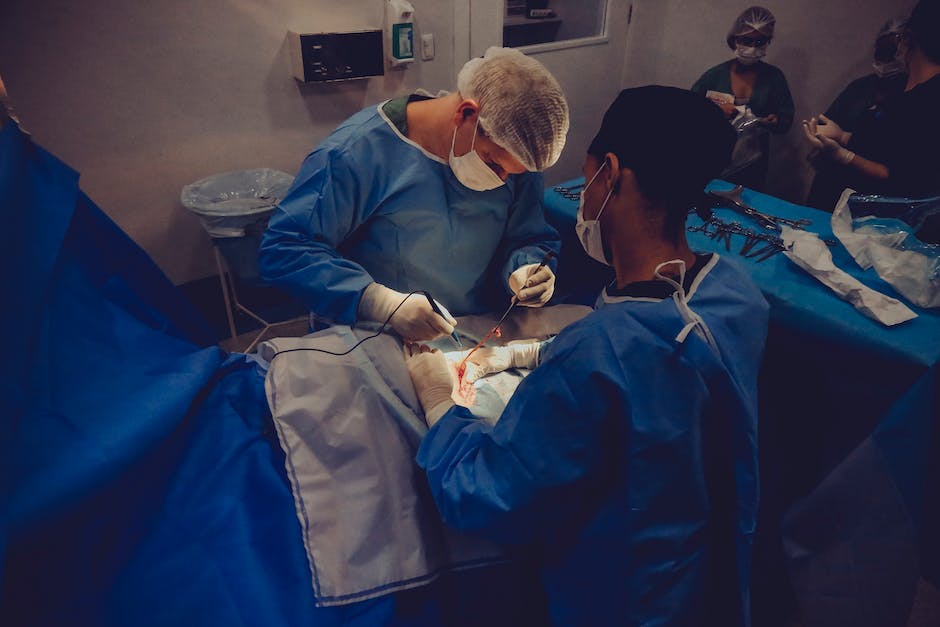In the United States and worldwide, the reason why weight loss surgery is on the rise is because obesity is a rising issue that poses serious health threats. As this condition continues to influence a significant portion of the population, understanding its causes and implications becomes increasingly vital. Often, obesity is linked to a variety of health issues including diabetes, heart disease, and certain types of cancer.
Despite numerous attempts to control weight through dieting, physical exercise, and medication, some individuals find these weight loss methodologies ineffective. In these cases, they may turn to weight loss and bariatric surgery as a solution. This piece explores the factors influencing this shift from non-surgical weight loss methods to surgical solutions, the range of available surgical options, their associated risks and complications, and what life might look like post-surgery.
Understanding Obesity
Understanding Obesity
Obesity is a chronic health condition characterized by an excessive amount of body fat. It’s typically determined using Body Mass Index (BMI), which is a measure of weight relative to height. An individual with a BMI of 30 or higher is considered to be obese according to this scale.
Understanding the causes of obesity can be complex as it is often the result of a combination of factors. These can include genetics, lifestyle habits, environmental factors, and sometimes underlying medical conditions. For instance, consuming high calories diets without sufficient physical activity can lead to weight gain, and if this trend persists over time, it can lead to obesity. Alternatively, certain genetic factors can influence metabolism and fat storage, thereby predisposing some individuals to obesity despite relatively normal food intake.
Obesity Impact on Health
The health impacts of obesity are numerous and wide-ranging. It increases the risk of various physical ailments, such as heart disease, high blood pressure, type 2 diabetes, and certain cancers. Obesity can also lead to problems associated with mobility and physical functionality, impacting overall quality of life.
Apart from physical health implications, obesity is also associated with several psychological conditions. This includes issues like depression, anxiety disorders, body dysmorphia, and lower self-esteem. Therefore, obesity is a multifaceted issue that necessitates comprehensive interventions.
Your Guide to Weight Loss Surgery Options
Reaching and maintaining a healthy weight can be a real struggle for some people. If you’ve tried diet and exercise but haven’t seen the scales shift, your healthcare provider might suggest considering weight loss surgeries for those struggling with obesity and related health issues.
These procedures, collectively known as bariatric surgery, modify the structure of the gastrointestinal tract – the stomach and digestive system – upending your body’s physiological and metabolic processes. Let’s take a look at some of the most common types:
-
Gastric Bypass Surgery
In this procedure, a small pouch is created in the stomach and the small intestine is bypassed. This confines the amount of food you can eat, and because of the rerouted intestine, your body absorbs fewer calories.
-
Gastric Sleeve Surgery
Also referred to as a sleeve gastrectomy, this surgery takes away a large portion of the stomach, leaving behind a slender “sleeve” shape. As a result, the amount of food your stomach can hold is reduced, making you feel satisfied earlier.
-
Adjustable Gastric Band
This method employs a band to form a small pouch in the upper section of the stomach. This modification reduces the quantity of food you’re able to consume.
-
Biliopancreatic Diversion with Duodenal Switch
This complex surgery shrinks the stomach’s size while also bypassing part of the small intestine, leading to substantial weight loss.
Each form of bariatric surgery comes with its own advantages and potential risks, some of which can be quite serious. That’s why it’s crucial to consult with healthcare professionals, including a bariatric surgeon, to determine the most suitable method given your health situation and weight loss objectives.
While these surgeries can be an effective weapon in overcoming obesity and related health complications, remember that the surgery itself isn’t the only answer—it must be complemented by a lifelong commitment to healthy lifestyle changes to sustain weight loss and enhance your wellbeing.

Non-surgical Weight Loss Methods
Alternative Non-Surgical Weight Loss Methods
Of course, surgery may not be the best fit for everyone. Many people can see notable weight loss and health benefits from non-surgical methods, which typically focus on lifestyle changes. For instance, adopting a healthy diet and regular physical activity are key factors in achieving weight loss. Consulting with dietitians or nutritionists provides tailored guidance in developing a nourishing and enjoyable eating plan that considers your individual nutritional needs and preferences.
Physical exercise is another critical aspect. Routine and varied workouts burn calories, accelerating your metabolism whilst also strengthening heart health and overall fitness. Aim for at least 30 minutes of moderate-intensity activity on most days of the week. It’s never too late to begin – with time and consistency, these lifestyle adjustments can lead to significant positive shifts in your overall health and wellbeing, potentially avoiding the need for more invasive procedures.
Weight Loss Medications
In addition to lifestyle changes, FDA-approved weight loss medications can be prescribed for individuals who are unable to lose weight through diet and exercise alone, especially those with medical conditions like obesity or type 2 diabetes. It’s crucial to note that weight loss medications should always be used under the supervision of a healthcare professional to monitor for potential side effects and drug interactions.
When to Consider Weight Loss Surgery
Moving from non-surgical to surgical weight loss treatments is generally considered when these lifestyle modifications and medications are ineffective, or when obesity has led to serious health conditions like hypertension or cardiovascular disease.
Specifically, weight loss surgery, also known as bariatric surgery, is usually recommended for adults with a body mass index (BMI) of 40 or higher. It may also be considered for those with a BMI of 35 or higher if serious weight-related health problems are present, such as type 2 diabetes or hypertension.
Prior to surgery, patients are typically required to undergo a rigorous pre-surgical screening process. This includes a series of tests and consultations with healthcare specialists, aimed at identifying any potential risks and preparing the patient for the physical and emotional changes that come with this major surgery.
Navigating the Pros and Cons
It is essential to be aware that weight loss surgery, like all significant procedures, carries both potential risks and gains. Consequently, it is vital to talk about these with your healthcare provider in-depth. The advantages can range wildly, from substantial weight loss to improving or even resolving conditions linked to excess weight.
While these operative solutions can radically transform lives, they necessitate a lifelong commitment and vigilant monitoring to optimize their advantages and avoid complications. Thus, making the choice to transition from non-surgical to surgical weight loss methods should be executed with careful deliberation, considering factors such as individual health status, readiness for sustainable lifestyle changes, and emotional readiness.
Types of Weight Loss Surgeries
Exploring Gastric Bypass Surgery
One of the prevalent weight loss surgeries is Gastric bypass, also referred to as Roux-en-Y gastric bypass (RYGB). This procedure aids in weight loss by decreasing the size of the stomach and altering the path of the digestive tract. In this method, a smaller stomach pouch is formed by the surgeon, who then goes on to bypass a section of the small intestine.
As a result, the body absorbs less food and nutrients, inducing weight loss. Gastric bypass surgery boasts remarkably high success rates, with the majority of patients shedding approximately 70% of their excessive weight within the first year. Such impressive success rates can be attributed to the combined effects of a reduced stomach size and the malabsorption of nutrients.
Gastric Sleeve Surgery
With a gastric sleeve, or sleeve gastrectomy, a majority of the stomach is removed, leaving a banana-shaped “sleeve” that can hold much less food. Unlike gastric bypass, this surgery does not alter the intestinal tract. The procedure works by decreasing the size of the stomach, which in turn leads to a smaller calorie intake. This procedure has demonstrated a high rate of success with most patients losing about 60% to 70% of excessive weight within one to two years following the procedure. This is a less complex surgery than gastric bypass but achieves a comparable success rate.
Adjustable Gastric Band Surgery
The adjustable gastric band commonly known as “lap band” procedure involves positioning a band around the upper part of the stomach to create a smaller stomach pouch. The size of this pouch can be adjusted over time by filling the band with saline that is injected through a portal placed under the skin. This surgery works by limiting the amount of food that the stomach can hold, thereby leading to lowered calorie intake. However, the weight loss derived from this procedure tends to be slower and less significant than gastric bypass or sleeve, with patients losing about 40-50% of their excessive weight.
Biliopancreatic Diversion with Duodenal Switch (BPD/DS)
The BPD/DS weight-loss surgery is less common because it is more complex and has higher risk of complications. It begins with a sleeve gastrectomy to decrease stomach size but then a significant portion of the small intestine is bypassed, much more than in a standard gastric bypass surgery. The benefit of this procedure is that it results in greater weight loss than the other surgeries. Most patients lose 70-80% of their excess weight. However, it also carries more risks, including malnutrition and vitamin deficiencies, due to the significant decrease in nutrient absorption.
You’ve heard the phrase before – “One size does not fit all,” – and it can be used to essentially describe weight loss surgery options. Indeed, each type of bariatric procedure has its own set of advantages and potential pitfalls, and what’s effective for one person may not be the optimal solution for another. With this in mind, it’s paramount to have a thorough discussion with your healthcare provider to determine the best surgical route for your unique needs and circumstances.

Risks and Complications of Weight Loss Surgeries
Taking a Closer Look at the Potential Risks and Complications of Bariatric Procedures
Weight loss surgeries, or bariatric surgeries as they’re medically known, are growing in popularity in the fight against obesity. They often present a significant reduction in body weight and improvements in obesity-related health issues.
However, just like any surgical procedure, bariatric surgeries carry inherent risks that future patients should be knowledgeable about before they take the leap. In addition, each type of weight loss surgery comes with its own set of specific risk factors.
Inherent Risks in Any Surgical Procedure
The inherent risks that apply to any kind of surgical procedure include reactions to anaesthesia, blood clots, infection at the surgical site, bleeding, and complications due to the patient’s overall health condition at the time of surgery. These risks are usually minimized by thorough pre-operative assessment and prompt post-operative care. However, complications do sometimes occur and can lead to prolonged recovery times, repeat surgery or in rare cases, death.
Gastric Bypass Surgery Risks
One of the most common weight loss surgeries is Gastric Bypass, where the stomach is divided into a small upper pouch and a larger lower remnant pouch, which reduces the amount of food the stomach can hold. Potential complications specific to this process include dumping syndrome (where undigested contents pass too quickly into the small intestine), gastric leaks, bowel obstruction, and malnutrition due to decreased absorption of vitamins and minerals.
Laparoscopic Adjustable Gastric Banding (LAGB) Risks
A less invasive procedure, LAGB involves placing a band around the upper part of the stomach to create a small pouch with a narrow opening into the rest of the stomach. Risks associated with LAGB include band erosion, band slippage leading to pouch enlargement, esophageal dilatation or reflux, and mechanical failure.
Vertical Sleeve Gastrectomy Risks
Another option is the Vertical Sleeve Gastrectomy, where around 80% of the stomach is removed, leaving a narrow vertical sleeve, or tube, that is about the size of a banana. Risks here include leak from the staple line, development of hernias, and similar to the gastric bypass, potential for malnutrition and vitamin deficiencies.
Bilio-Pancreatic Diversion with a Duodenal Switch (BPD/DS) Risks
In more complex cases, especially for super obese patients, a BPD/DS may be recommended. This procedure carries higher risks including greater potential for malnutrition and vitamin deficiency, intestinal irritation, foul-smelling gas and bowel movements, and potential for higher mortality rate due to the complexity of the procedure.
Before going under the knife for weight loss surgery, a careful examination of the benefits versus the potential risks and complications is paramount. Patients are encouraged to engage their surgeons in thorough conversations to understand the implications of each surgical option.
This way, an informed decision can be made. Factors such as an individual’s overall health, personal weight loss objectives, and a resolve to adopt the long-term lifestyle changes should be considered in choosing the most fitting weight loss surgical procedure.
Life after Weight Loss Surgery
What to Expect After Weight Loss Surgery
The journey to recovery following a weight loss surgery varies with each patient and is determined by the specific surgery performed. For instance, the average hospital stay for those who undergo a gastric bypass is usually around 2-3 days, with a complete recovery happening after about 3-5 weeks. On the other hand, patients who choose gastric banding or Sleeve Gastrectomy usually have a shorter hospital stay, a generally faster recovery period, and less complications.
Also of significant note, is the dietary restrictions implemented immediately following the surgery. Typically, patients’ diets comprise of clear liquids and pureed foods only. However, as their bodies gradually adapt to the surgical alteration, normal foods are slowly reintroduced into the diet.
Lifestyle Changes Post-Surgery
The journey to sustained weight loss after surgery is neither automatic nor effortless and necessitates significant lifestyle changes. Foremost, regular exercise will be crucial in keeping the weight off. Most experts recommend a combination of both strength training and cardiovascular workouts for optimum results.
In addition, dietary habits must change. The new, smaller stomach size requires smaller, more frequent meals. Patients must work closely with a dietician to ensure they are getting enough protein and other essential nutrients, whilst avoiding foods that can cause discomfort or dumping syndrome. Also, it is recommended to limit intake of sugary and fatty foods.
Emotional Health After Weight Loss Surgery
In many cases, weight loss surgery ultimately leads to overall enhancement of quality of life, bringing improvements in physical health issues like diabetes or heart disease. However, it’s important to note that emotional health can be affected post-surgery. It can be a huge step for individuals, as they experience drastic weight loss and body changes.
Some might experience a boost in self-esteem and mood, while others may face challenges including anxiety, depression, or struggles with self-image. Some patients find themselves dealing with a type of identity crisis, as they get used to their new body and the reactions of others. It is thus highly advised that patients have access to support groups and mental health professionals to navigate these emotional changes and challenges.
Another key point is that patients may have to grapple with loose skin after dramatic weight loss. Many opt for cosmetic surgery to remove excess skin, though the decision is entirely personal and depends on how the individual feels about their body post-surgery.
Long-Term Outlook
In the long term, patients can expect significant weight loss within the first six months to a year after surgery. After this period, weight loss usually continues at a slower pace. The amount of weight loss and how fast it occurs, however, varies from one person to another.
Above all, it’s critical to understand that weight loss surgery is a tool to aid in weight loss, not a magical cure. It requires lifelong habits of healthy eating and regular physical activity to sustain the weight loss. It involves commitment and dedication to a healthier lifestyle.

While the journey may be challenging and fraught with both physical and emotional obstacles, weight loss surgery can serve as a transformative experience that positively alters the course of one’s life. Nevertheless, it’s essential to remember that surgery should not be viewed as an easy way out, but rather as a tool to assist in the weight loss journey.
It requires a steadfast commitment to lifestyle changes following the surgery and a dedication to overall health and well-being. Knowing the risks and benefits associated with each surgery type, as well as understanding the path to recovery, can aid in making an informed decision when considering weight loss surgery.
Thank you for reading this post, don't forget to subscribe to our free newsletter
!
